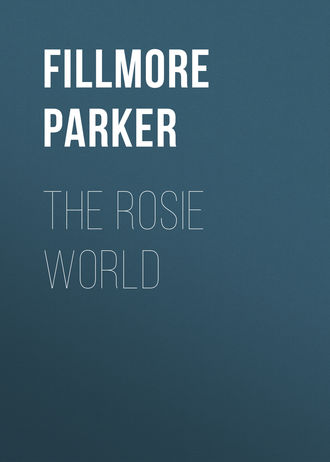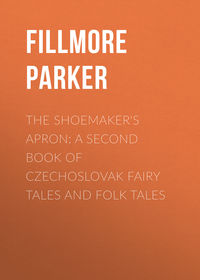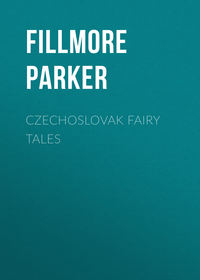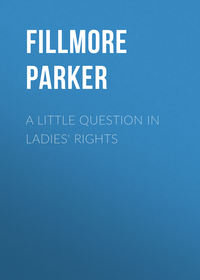 полная версия
полная версияThe Rosie World
Rosie stood up to go. "Say, Janet, you promised to come with me this afternoon. Get your hat."
"Yes," advised Mrs. Sullivan; "put on that old black sailor hat that makes you look like a guy. Mary McFadden, if I had a girl I wouldn't let her out on the street in a hat like that!"
Rosie and Janet started off and Tom called after them: "Wait a minute! I'll come, too!"
"No, you don't!" his mother ordered. "You stay right where you are! You don't get out o' my sight till I hand you over to your dad!"
Once safe on the street, Rosie put a sympathetic arm about Janet's shoulder. "Even if she is your aunt, Janet, I think she's low-down and I hate her!"
"Pooh!" Janet tossed her head in fine scorn. "In my opinion she ain't worth hating! She ain't nuthin'! I consider her beneath my contemp'! The truth is, Rosie, I don't mind her buzzin' around any more than I do a fly! She'd die if she didn't talk; so I say let her talk. If she couldn't she'd probably do something worse. My mother feels the same way. We get tired of her sometimes, but we stand her because she's my dad's own sister… Of course, though, some of the things she says is perfectly true. I ain't pretty. You are, Rosie, but I ain't and I know it, and that's all there is about it."
Janet spread out her hands in simple candour and glanced at her friend. Then, involuntarily, she gave a little sigh. It was not a sigh of envy. She really did accept as a matter of fact that she herself was not pretty and that Rosie was. Where Rosie was plump and rounded and graceful, Janet knew that she was flat and long and lanky. Her arms were long, her fingers were long, her face was long. Her dark hair, too, was long, but with nothing in texture or colour to recommend it. She wore it pulled straight from her forehead and hanging behind in two stiff plaits.
With her old black hat, her colourless face, her faded clothes, she gave the impression of a very shabby, serious little person. And she was both. Rosie, on the other hand, though as poorly dressed, seemed anything but shabby and serious, for she was all life and colour, like some little roadside flower, which, in spite of dusty leaves, raises aloft a bright, fresh bloom.
Janet might bravely dismiss her aunt with a wave of the hand, but Rosie insisted upon repeating herself.
"I don't care what you say, Janet, I think she's low-down the way she talks to you and your mother! Now Tom's nice. That was fine the way he spoke up. You don't think his father'll lick him, do you?"
"Uncle Matt?" Janet laughed. "Nev-er! Uncle Matt's just crazy about Tom. They're like two kids when they're together. And that reminds me, Rosie – goodness me, I was forgetting all about it!" Janet paused to give full flavour to her bit of news. "What Tom came over for this afternoon was to tell me that Uncle Matt has promised to give him and me tickets for the Traction Boys' Picnic – you know it's coming in two weeks now – and Tom says he's going to try to beg another ticket for you!"
"Is he really, Janet? Now isn't he just too kind!"
"Kind? I should say he is! He's bashful, of course, and people laugh at him because he's got red hair, but he's just as generous as he can be. You remember last year I went with him, too. Why, do you know, last year his father had six customers who bought their tickets and then turned right around and said: 'But we can't go, so you just give these tickets to some one who can.' Uncle Matt had enough tickets for the whole family and two more besides. He sold those two and give us all ice-cream sodas on them."
"Did he really, Janet! That just proves what I always say: in some ways I'd much rather have my father be a conductor than a motorman. A motorman never gets a chance at a ticket. I'm glad Jarge Riley's a conductor. I bet he sells a good many, don't you?"
"Of course he will, Rosie! I hadn't thought of Jarge. If a customer gives Jarge back a ticket, of course he'll pass it on to you – I know he will. Gee, Rosie, you're lucky to have a fella like Jarge Riley boarding with you. He sure is a dandy."
To this last Rosie agreed readily enough but on the priority of her claim to any tickets she set Janet right. "If he gets only a couple, he'll give Ellen first chance."
Janet sighed. "Say, Rosie, is he still dead gone on Ellen?"
Rosie sighed, too, and nodded. "Ain't it funny with a fella that's got so much sense about other things?"
Janet sighed again. "I don't like to say anything against Ellen, because she's your sister, but, as you say yourself, it certainly is funny."
CHAPTER X
ROSIE RECEIVES AN INVITATION
Rosie did not see George that night, but she brought up the subject next day at dinner. It was Sunday, so the whole family was assembled.
"Are you selling many tickets, Jarge?"
"Yes, a good many, and one of my customers give me back two."
"Oh, Jarge, did he really? What are you going to do with them?"
George glanced timidly in the direction of Ellen. It was plain at once what he wanted to do with them. It was also plain that Ellen was not going to give him much encouragement. To get the support of the family, George made his invitation public. "I was hoping that Ellen would like to go with me."
Ellen glanced up languidly. "Thanks, Mr. Riley, but I don't see how I can."
George, swallowing hard, forced out the question: "Why not?"
"Well, if you insist on knowing, it's this: I don't care to make a guy o' myself going out with a fella that don't come up much above my shoulder."
Mrs. O'Brien threw up astonished hands and cried out: "Fie on you, Ellen, fie, for sayin' such a thing!"
Rosie blazed and spluttered with indignation: "Ellen O'Brien, you ought to be ashamed o' yourself to talk like that to a nice fella like Jarge Riley! If you had any sense you'd know that he's worth a whole cart-load of the dudes that you and Hattie Graydon run after!"
Rosie got up from her chair and, stepping over to George's place, slipped her arm about his embarrassed neck. Then she put her cheek against his. "Don't you care what that old Ellen says, Jarge. You're not little at all! You're plenty big enough! Besides, little men are much nicer!"
Ellen laughed maliciously. "It's a pity George don't ask you."
The red again surged up George's neck; he gulped; sent one hurt glance in Ellen's direction, then spoke to Rosie: "Rosie, I've got tickets for the Traction Boys' Picnic and I'd love like anything to take you. Have you got anything else on for Friday night next week?"
"Friday night, did you say, Jarge? Why, for Friday night they ain't nuthin' 'd suit me better! Thanks ever so much!"
Rosie, still behind George's chair, shot an annihilating glance at Ellen. That young woman, a trifle piqued perhaps but still amused, tossed her head and laughed.
"Ma, I don't think it's right the way Rosie's getting a grown-up fella and me not even engaged yet! I don't think you ought to allow it!"
"Ellen, Ellen, your tongue's entirely too long!" Mrs. O'Brien looked at her reprovingly, but Ellen, in a sudden change of mood, heeded her not. She was gazing at Rosie with speculative eyes. When she spoke, it was in a tone from which all banter and ill-humour had vanished.
"Ma, if Rosie does go with George Riley, there's just one thing: she's got to have a new dress. The poor kid hasn't a stitch to her back. She ought to have a little pink dimity. She's just sweet in pink. Lucky, too, there's a sale on tomorrow at the Big Store. So you needn't say a word – I'm going to get her something. And I'll trim her a hat, too."
Mrs. O'Brien protested that she hadn't the price of a ten-cent hat, let alone a dress, but Ellen, as usual, was firm, and Rosie knew that she was now destined to go to the picnic prettily costumed. Rosie would have liked to nurse a while longer her indignation against Ellen but, as Ellen was the only person in the house who knew how to trim a hat out of little or nothing and how to whip together a pretty little dress, Rosie was forced to change her manner of open hostility to one of a more friendly reserve.
On the whole Rosie was jubilant. "I'm sure I don't know why it is," she said to Janet McFadden, "but people are pretty nice to me, aren't they?"
"Nice?" echoed Janet with long-drawn emphasis. "Well, I should think they are!.. Say, Rosie, listen: " – Janet paused a moment – "do you think Tom and me and you and Jarge could all go together? Do you think Jarge'd mind?"
Rosie considered the request carefully before answering. Then she spoke as kindly as she could: "I'm sure I don't know, Janet. Perhaps he'd like it all right, but, then again, perhaps he wouldn't. Don't you know, men are so queer nowadays. Anyway, though, I tell you what: I'll ask him."
"Will you, Rosie?" Janet's gratitude was almost pathetic.
Later, in presenting the case to George himself, Rosie's manner lost its air of Lady Bountiful, and she pleaded Janet's cause with an earnestness for which Janet would have worshipped her.
"Aw, now, Jarge, please! Poor Janet won't be in our way and she would love to be with us. Tom Sullivan don't talk much and he's got red hair, but he's awful nice, really he is. I told you he was trying to get me a ticket before you invited me. And besides, Jarge, if we get tired of them we can give them the slip for a little while."
As soon as Rosie paused for breath, George said: "Of course we'll let Janet and Tom Sullivan come with us if you want them. This is to be your party and you're to have things your own way."
Rosie looked her adoration. "Oh, Jarge, you're just too kind to me, really you are!"
The new dress was a great success. It was a little rosebud dimity, pink and pale green, which Ellen designed in pretty summer fashion to make the most of Rosie's well-turned little arms and graceful neck. On a ten-cent bargain counter Ellen had found a hat of yellow straw which was just the thing to shape into a little bonnet and trim with a wreath of pink rosebuds and two soft green streamers which hung down on either side.
Ellen planned and worked and was happier than Rosie herself over each new effect. Mrs. O'Brien, hovering about, beamed with approval.
"Ellen's an artist with her needle," she declared over and over again. "She is indeed. How she does remind me of me own poor dead sister Birdie! There was a milliner in Dublin would have give her two eyes to get Birdie into her shop."
Mrs. O'Brien was right. Ellen was an artist with her needle and took all an artist's joy in her own creation. As she worked on Rosie's costume, she showed none of that impatient, overbearing selfishness which marked her so disagreeably at other times, but was gentle, frank, and affectionate. Once when she pricked Rosie's shoulders by accident she kissed the hurt away, and Rosie, surprised and touched, threw her arms impulsively about her neck.
"Why can't you always be like this to me, Ellen? I'd just love you dearly if you were."
Ellen laughed a little shamefacedly. "Ain't I nice all the time, Rosie? Well, I'm afraid it's that old business college. It gets on my nerves. I suppose I ought to be studying now, but I'm not going to. I'm not going to stop until I finish this for you."
On the afternoon of the picnic, Ellen was so proud of Rosie's appearance that for once she forgot her haughtiness to George Riley. "Now tell the truth, George, aren't you glad it's Rosie instead of me?"
George gave Ellen one sick look, gulped, then said bravely: "Rosie sure is mighty pretty!"
"Pretty? I should say she is! See her now. Don't she look like a little flower – a sweet-pea or something? And do you know, George, if I was to dress that way, with my size and my height, I'd look like a guy! Yes, I would."
CHAPTER XI
THE TRACTION BOYS' PICNIC
They started off in time to make the half-past-five boat. George was at his dressiest, so close-shaven that he looked almost skinned and resplendent in new tan shoes, green socks, a red tie, and a pink shirt. It was a striking combination of colour and one that made Ellen clutch at her mother in despair. George carried a shoe-box of sandwiches, for Rosie, always a thrifty little housewife, insisted that whatever money they had to spend was not going for the commonplace necessaries of life.
Janet McFadden and Tom Sullivan, with a similar shoe-box, were waiting for them at the corner. Janet, in her old black sailor hat, looked dreadfully neat and clean, but for some reason even dingier than usual. It was Janet's first view of Rosie's finery. Shaking her head slowly, she gazed at Rosie several moments before she spoke. Then she said:
"Well, Rosie O'Brien, I must say you certainly do look elegant!"
Tom Sullivan was so flustered by the close vision of Rosie's loveliness that, when he opened his mouth to say something, he could only splutter unintelligibly and then blush furiously at his own embarrassment.
It is surprising, when one stops to think about it, how delightful a mere street-car ride downtown really is. As Rosie sat there with her plain but faithful friend on one side – hereafter she must always try to be especially kind and gentle to Janet – and on the other her sporty, grown-up escort, she had one of those rare moments of perfect content and happiness. Old gentlemen smiled at her absent-mindedly as she brushed aside the green streamers which the wind was forever blowing across her face; young girls examined her critically; a mother across the way distracted the attention of a weeping child by pointing her finger and saying: "Oh, Eddy, look over there at that pretty little girl! She's lookin' straight at you, and what'll she say if she sees you cryin'!"… It was really a lovely, lovely world, and Rosie honestly and truly hoped that everybody in it was happy.
They reached the boat at that delightful moment when the bell is ringing and the deckhands are threatening to pull in the gang-plank in spite of the rushing crowds still arriving. By the time they had pushed their way to the upper deck, the gang-plank was in, the band was striking up a gay march, and with a lurch and a turn the Island Princess was off.
"O-oh!" murmured Rosie happily, and Janet demanded tensely, of no one in particular: "Isn't this just grand!"
Mothers and wives bustled about to get folding chairs and campstools, but the young folk, scorning so soon to sit down, promenaded arm in arm. Tucking Rosie's hand under his elbow, George joined the ranks of the promenaders, and Janet and Tom Sullivan followed his lead at a respectful distance.
At the stern, seated off by themselves, was a group of picnickers who hailed George as an old friend and waved at him inviting arms and handkerchiefs.
"Let's go over and say 'Howdy,'" George suggested.
There were some ten of them, girls and young fellows about George's own age. George took off his hat to them all and, with a flourish, presented Rosie.
"Ladies and gentlemen, allow me to introduce to you my lady friend, Miss Rosie O'Brien. Rosie, won't you shake hands with my friend, Mr. Callahan, and Miss Higgins, and Miss McCarthy, and Miss Mahony, …"
Rosie, feeling eighteen years old and perfectly beautiful, went the rounds to an enchanting chorus of, "Pleased to know you, Miss O'Brien," "You sweet little thing!" "Excuse me, Miss Rosie, but I must say George Riley knows how to pick out a pretty girl!.."
George then presented Janet, and Janet, too, went the rounds, looking like a sleep-walker with tight-set muscles and staring eyes.
"And this," concluded George, giving Tom Sullivan a little push, "is Matt Sullivan's boy. You fellows all know Matt – he's on the East End run."
With blinking eyes and a crimson embarrassment that mounted to ears and scalp, Tom passed about a nerveless, sodden hand.
After a few more pleasantries, George, gathering together his forces, flourished his hat and said: "Well, so long, friends! See you later."
"Weren't they nice!" Rosie remarked enthusiastically, and Janet, in humble gratitude, said: "That was awful kind of you, Mr. Riley, introducing Tom and me."
"Kind nuthin'!" George declared. "Aren't you my friends, I'd like to know? Aren't all Rosie's friends my friends?"
Unable to express in words how deeply moved she was by the loftiness and nobility of this sentiment, Janet could only look at Rosie, sigh gloomily, and shake her head.
They ate their little picnic supper as soon as they landed, topped off with ice-cream, and then, unencumbered with shoe-boxes, sought out the allurements of sideshows, aërial and subterranean thrillers, and dancing pavilion. Rosie insisted that they go into nothing that cost over ten cents. By adopting this principle and making frequent excursions to the dancing pavilion, which was free, they were so well able to husband their resources that George's two dollars and Tom Sullivan's fifty cents carried them through the evening.
It seemed to Rosie she had never enjoyed so perfect a picnic. All the thrillers really thrilled. Capitana, the giantess snake-charmer, was actually a giantess, and the snakes she wound about her fat neck were fully as long and as spotted and as green as the posters made out. And so on through everything they tried.
"I've never had such a good time in my life!" Rosie declared, as they hurried off to the ten-o'clock boat.
"Me, too!" gasped Janet in solemn, sepulchral tones.
Looking at the strained expression of happiness on Janet's face, Rosie suddenly thought of something new that would fittingly crown the day's adventures. Out of her own abundance she would give Janet another crumb that would make her eternally grateful.
"Say, Jarge," she whispered coaxingly, "will you do something for me?"
George looked down at her indulgently. "Of course I will. Anything you want."
"Well then, listen, Jarge: Will you take Janet all the way home and be real nice to her and pretend she's your girl and pet her real, real hard. Nobody ever pets Janet, and she never has a good time except when she's with me. And I'll take Tom Sullivan."
George laughed a good-natured "All right," and Rosie, turning around, said to Janet: "Jarge don't want me any more, do you, Jarge? He wants you, Janet, don't you, Jarge, want Janet? So will you let Tom Sullivan take me?"
"Oh, Rosie!" Janet threw incredulous eyes to heaven and clutched her hands together in a joy that was serious as grief.
Rosie pushed her up to George and George, capturing her cold fingers, drew them through his arm. Then Rosie, glowing all over in virtuous self-approval, dropped behind with Tom Sullivan.
CHAPTER XII
THE LOAN OF A GENTLEMAN FRIEND
The wives and mothers, with sleepy, crying children, cluttered up the lower decks. The young people by some common instinct seemed all to be drawn to the quiet and moonlight of the upper deck. There Rosie's party found them, a thousand couples more or less, each couple sitting somewhat apart from its neighbours, but frightfully close to itself.
"I suppose they're all engaged," Rosie remarked to Tom Sullivan, and even in the moonlight Tom blushed furiously.
George and Janet found the unoccupied half of a deck bench, not too far from the rail, and Rosie and Tom seated themselves on campstools some distance behind. They were pretty far in on deck and so could see very little beyond the backs of the great half circle of couples. But backs, in their way, are very expressive, and Rosie soon found herself deeply interested in the romances of which these various backs were soon giving most unmistakable hints. Every couple that sat down seemed to go through precisely the same emotional experience. A properly equipped statistician could soon have reduced the whole thing to a matter of minutes and seconds.
Take what would be an average couple: They seat themselves like ordinary people in their right minds and, for a moment, that is what you suppose they really are. But only for a moment. Although they may be the only couple on the bench, almost immediately you see them crowding against each other as if to make room for a fat lady with a baby. Then to get more room the man drops his arm – the arm next the girl – over the back of the bench, where it lies a few moments lifeless and inert. The position is uncomfortable, evidently, for soon he tries to bring it back. Too late. The invisible fat lady with the baby has, in the meantime, wedged the girl right under the man's shoulder, and his arm and hand, in circling back, circle naturally about her. She, poor little soul, seems not to know what has happened. Her tired head sinks like a weary bird – sinks on his breast. She sleeps. At any rate, she looks like it. Then she wakes. She wakes gradually. Her profile slowly rises and, as it rises, lo! his descends until – until – Well, you know what always occurs when his profile meets her profile full-face.
Every time they saw it happen, Rosie held her breath for a moment, then murmured: "They must be engaged, too!"
Tom Sullivan stood it as long as he could, then burst out: "Aw, go on! You don't have to be engaged to kiss!"
Rosie looked at him, scandalized and shocked. "Why, Tom Sullivan, how you talk! You ought to be ashamed o' yourself!"
"Well, you don't!" Tom insisted doggedly.
Rosie, drawing herself away from a person of such free-and-easy morals, returned to the backs of the last couple to see whether their little drama had completed itself. As she looked, the final act opened. The man whispered something – from what happened when all the other men had whispered something, Rosie decided he must be asking the girl if she were chilly. She, like all others before her, presumably was, for the man took off half his coat, the half near her, and drew it around her shoulders. What became of his shirt-sleeved arm, or what, in fact, thereafter became of the rest of both of them, no mere onlooker could ever know. The half-coat, raising high its collar, served as an effectual screen against the gaze of a curious world, and the only thing left for a student of human nature was to hunt a new couple.
One of the marvels of a picnic boat is that there are always new couples. Rosie found one immediately and was already engrossed in it when Tom Sullivan, clutching her excitedly, cried out:
"Look! Look! Didn't I tell you!"
Rosie looked, and what she saw seemed for a moment to make her heart stop. George Riley and Janet McFadden – think of it! How long the exhibit had been going on Rosie knew not, but Tom Sullivan had discovered them just as Janet's profile was rising and George's descending. In another instant —
"There!" shouted Tom Sullivan in triumph. "Didn't I tell you so! Now you can't say they're engaged!"
Rosie stood up hurriedly.
"This is a perfectly horrid boat and I wish I could get off! And I tell you one thing, Tom Sullivan: I'm going downstairs. I won't stay up here any longer. It's disgraceful, that's what it is!"
"Aw, don't go down!" Tom begged. "It's fun up here."
But Rosie was already started and Tom had to follow.
"Say, Rosie," he chuckled confidentially over her shoulder as she climbed down to the next deck, "did you see old Janet? Gee! I bet it was the first time a fella ever kissed her!"
Had Rosie seen old Janet? Yes, Rosie had, and the mere thought of the perfidious creature sent Rosie hot and cold by turns. Oh, to think of it! After all she had done for Janet out of the innocent kindness of her heart, to have Janet face about and treat her so! Why, she was nothing but a thief, a brazen thief!..
It was true that, in a sense, George did not belong to Rosie: he belonged to Ellen O'Brien if Ellen would once make up her mind to possess him; but as between Rosie and Janet he certainly belonged to Rosie. And Janet knew it, too! And he knew it! Oh, what a weak character his was, thus to be tempted by the first fair face! Fair face, indeed! The first ugly face! Yes, ugly! Not even her own mother could call Janet anything else!
Rosie found uncomfortable places for herself and Tom among the wives and mothers who, heavy-eyed and dishevelled, were waiting impatiently to land. Shining over them was no glamour of moonlight. They were plain, homely, hard-worked women – exactly what Janet McFadden would be some day, if George Riley had but sense enough to know it. Rosie picked out the homeliest of them all and wished she had George down beside her so that she could say to him:
"Do you see that woman? Well, that's what your dear Janet's going to look like when she grows up!"






